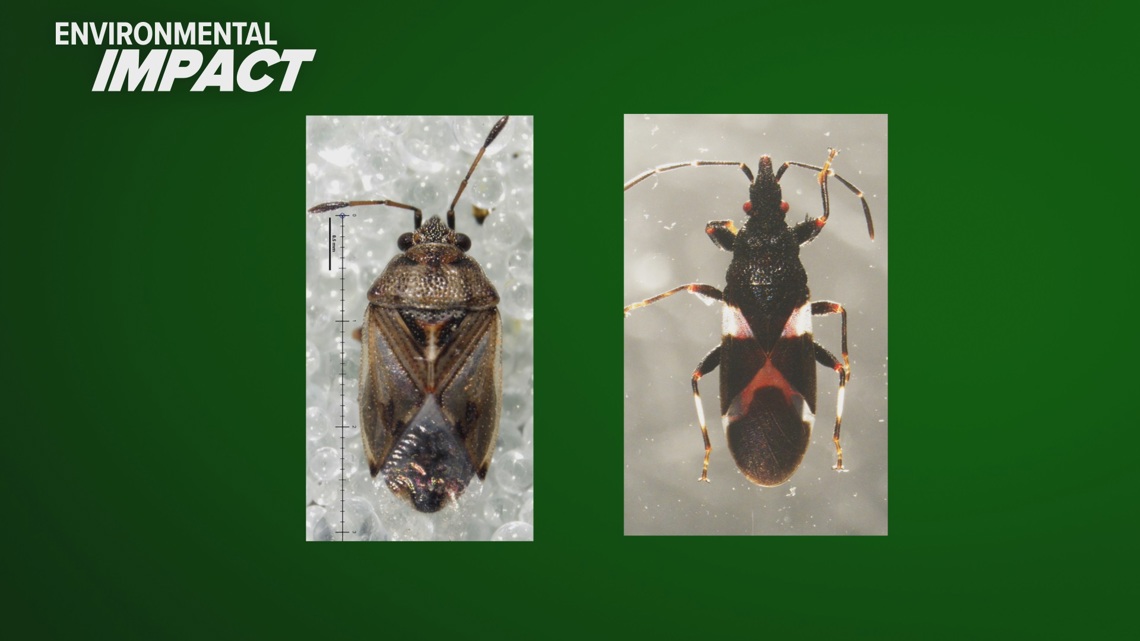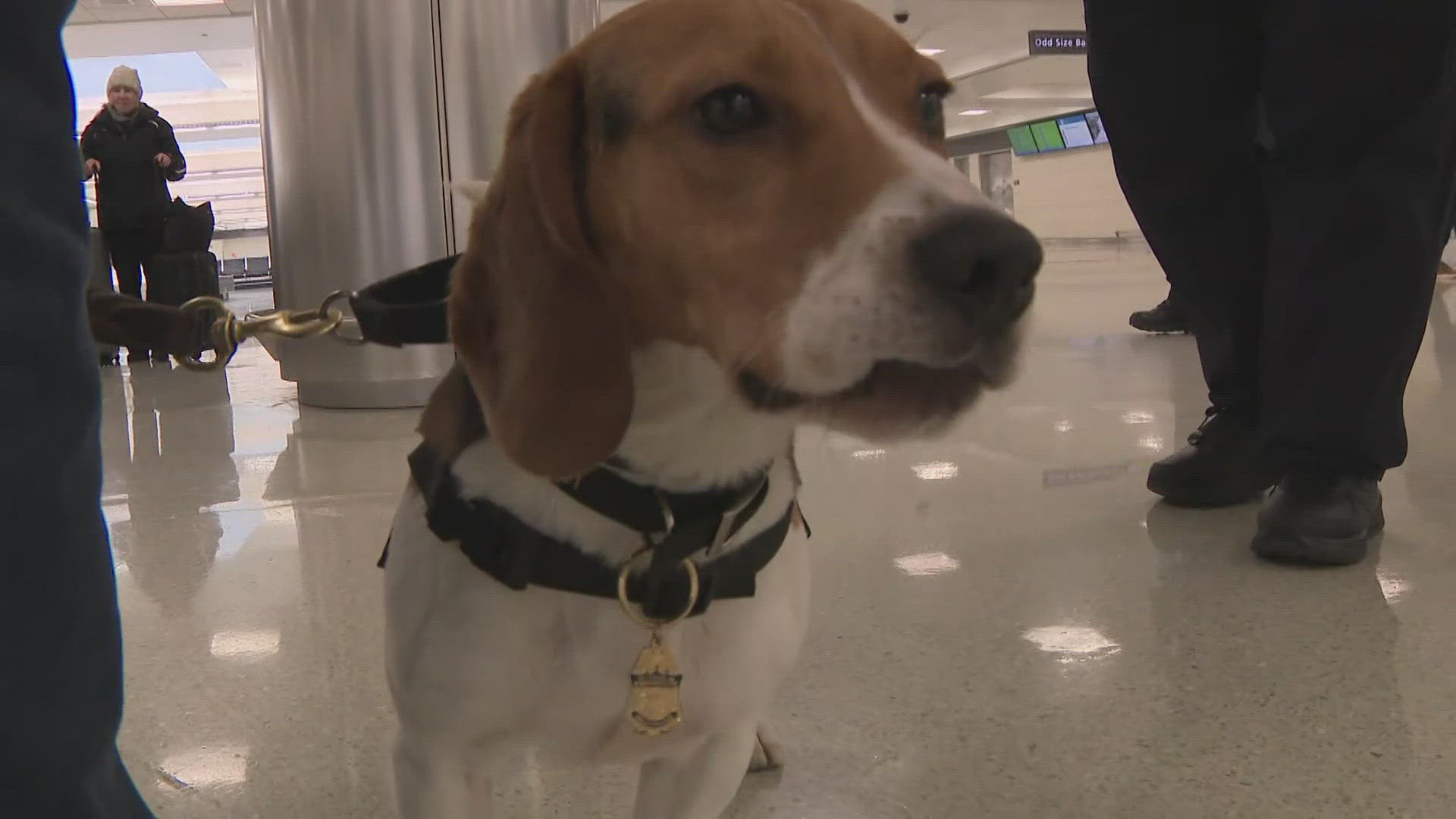DULLES, Va. — Customs and Border Protection (CBP) officers at Dulles International Airport recently uncovered two species of invasive insects in a shipment of cut flowers from South Africa.
While tiny in size, these pests have the potential to wreak havoc on U.S. agriculture and native ecosystems, with potential damage reaching billions of dollars.
"One of the species has never been seen here at Dulles before, and the other hasn’t appeared in the U.S. in 40 years," said Chief Christopher Brewer who directs CBP’s Agriculture section in the DC region.
One insect targets leafy vegetation, while the other is known to destroy seeds, grains, and nuts, posing significant threats to crops and native plants.


WUSA9 went behind the scenes with Brewer and his team to see how they try to detect threats daily.
The front lines include two rescue beagles named Red and Reks, who use their keen sense of smell to detect unseen fruits, vegetables, meats and insects in incoming baggage and cargo.
When the dogs key on a bag or cargo item, it is pulled aside, electronically scanned, and then searched if a prohibited item is suspected inside, Brewer explained. This process led to the discovery of dozens of items like sausage, vegetable seeds, wildlife parts and other agricultural goods carried by unaware passengers on the day WUSA9 visited.
In the case of the flowers from South Africa, the inspection was a routine matter. The discoveries were not.
"Flowers frequently have insects," Brewer explained. "To check for those insects in the cargo is to take the bundle, invert it, and give it a nice tap to see what falls out."
The stakes are high.
"Those bugs had the potential to devastate the U.S. agricultural industry," Brewer stated. "U.S. agriculture is one of the few sectors where we export more than we import, making it a valuable industry worth billions of dollars."
Eighty percent of cut flowers sold in the U.S. are imported, according to the USDA.
Invasive species pose broader concerns beyond agriculture. The discovery of spotted lanternflies, which entered the U.S. through the port of Philadelphia, highlights the environmental impact of unchecked infestations. These insects are currently damaging native plants across the region, especially vineyards and fruit crops.
Brewer’s team also seizes unusual items daily, including seeds, dried meat, and edible bird nests constructed in the wild by Asian finches that use their saliva to make the nests.
"This is about $1,000 right here I’m holding," Brewer said, holding a package of the bird nests. "In this particular case, we’re worried about things like bird flu."
Efforts to prevent invasive species are critical not only for protecting U.S. agriculture but also for safeguarding the environment from irreversible damage.

